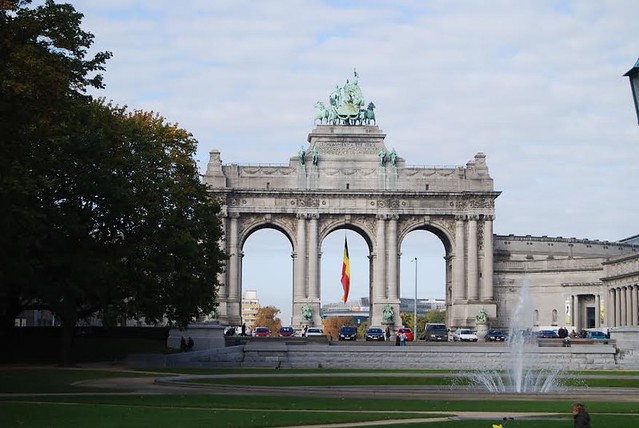Belgium: Brussels, Belgium’s capital and home of the European Union headquarters, was struck by a terrorist attack that killed more than 35 people and wounded around 300 more on Tuesday, March 22. The Islamic State (ISIS) has taken credit for the attack. Two explosions were set off in the main terminal of Brussels’ Zaventem Airport, and one bomb exploded at a metro station in the city center. The two airport bombers were seen with a third who abandoned a much larger bomb which exploded once the area was cleared. This has spurred a search for this third attacker as well as anyone who may have been involved in the bombings of Brussels and Paris last November. The same group of people responsible for the Paris attacks are thought to be linked to the attacks in Belgium. Elliot O’Farrell a Brussels native who was visiting his family at the time of the attacks said he was supposed to leave from Zaventem Airport the day after the attacks occurred. “I was getting ready to leave my house for the metro when the underground bomb exploded, In both cases I was safe, but my sense of security has obviously lessened while on public transportation,” O’Farrell said in a text. “I believe that the most likely course of action will be retaliation against the criminal elements of the city with past affiliations to hate groups and/or Islamic groups. While I believe this is a legitimate course of action, I think that it looks much better on paper than it will in reality. Nothing breeds hatred more than a feeling of injustice. I fear that the Belgian security forces will be overzealous in their search for criminals, create resentment from those unjustly persecuted and arrested which in consequence will provide fresh recruits for the hate groups. I believe ISIS is engaging in their own PR campaign and are demonstrating how far reaching their power is. I believe Belgium and the EU should counteract that campaign by reaching out to the more derelict districts of the city (which are primarily Arabic and African) and engage them in a positive fashion. I believe that likewise to certain parts of America, the trust has been broken and that the attacks were on Brussels were an attempt to create a new cycle of hatred.”
Pakistan: A public park in the city of Lahore, Pakistan was blasted by a suicide bomber on Sunday, March 27. More than 70 people were killed and up to 350 were injured. The attack was claimed by a faction of the Pakistani Taliban. The park, which was crowded with families and children celebrating Easter Sunday, was targeted for the number of Christians who were present. The attacks occurred in Lahore while protests took over the capital and other parts of the country. Protesters came out in support of Pakistan’s religious blasphemy laws which illustrate the continued sympathy of some Pakistanis to religious separation. Terror like the Sunday bombing is not unfamiliar in Pakistan, where dozens of attacks claimed by the Taliban or related groups have killed more than 500 people since December 2014. The suicide bombing in Lahore, however, was particularly tragic, targeting families and children. The chief minister of Punjab, the region where Lahore is the capital, has called for three days of mourning.
South Korea: South Korean activists and North Korean defectors have been sending balloons filled with messages, leaflets, candy and money across the border to North Korea. Posters hanging from these balloons commonly denounce North Korean leader Kim Jong-un or encourage citizens to defect to the South. North Korean authorities have tried to shoot down balloons, citing public safety concerns, and the capital has regularly threatened violent retaliation against the balloon launches. This swarm of balloons, along with the military loudspeakers which blast pop music and political content across the border, attempt to send a message to North Korean citizens and authorities. In January, leaflets from the North, which were also sent by balloon, called these loudspeakers an act of “psychological warfare.” Some South Korean locals oppose the balloon launches, fearing attacks and more severe retaliation. As North Korea continues to carry out missile firings, satellite launches and nuclear tests, tensions between the Koreas seem to be growing. Some South Korean conservatives and religious groups have launched the helium balloons in an attempt to unite citizens of the two nations.
Bolivia: The landlocked nation of Bolivia has said it will file a suit against Chile in the International Court of Justice (ICJ) for the second time. The Silala spring near the border shared by Bolivia and Chile is considered an asset by the former and a shared resource by the latter. Bolivia, a pacifist country, has opted to seek damages and payment from Chile through the court, rather than military action. In 2013, Bolivia approached the court for another water-based dispute, asking that Chile – which gained more than 200 miles of coastline from Bolivia in the 19th century – allow the nation access to the Pacific Ocean. The waterworks are unlikely to be quelled anytime soon, however, as the court has still not reached a ruling on the first appeal.


